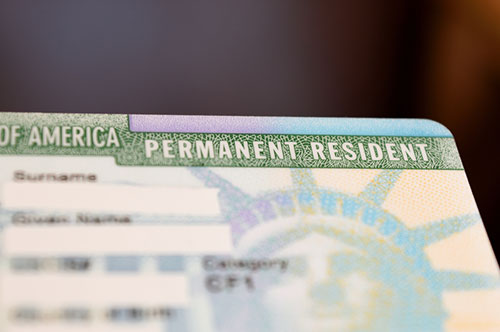What to Do When Heirs are Foreign Nationals? Explanation of Applicable Laws and What to Do

When the decedent or heirs include foreign nationals, different procedures and documents may be required compared to the usual process. In particular, if the decedent is a foreign national, it is important to note that the laws of the decedent’s nationality may apply instead of the Japanese Civil Code.
Here, attorneys from Verybest Law Offices will explain the inheritance process involving foreign nationals.
Table of Contents
- 1: The Case Where the Decedent is a Japanese National and the Heir is a Foreign National
- 2: The Case Where the Decedent is a Foreign National and the Heir is a Japanese National
- 3: What Documents Need to be Prepared When the Heir is a Foreign National?
- 4: Reasons to Consult an Attorney for Inheritance Involving Foreign Nationals
- 5: Conclusion
1: The Case Where the Decedent is a Japanese National and the Heir is a Foreign National
When the deceased (decedent) is of Japanese nationality and the heir is of foreign nationality, generally, Japanese law (the Civil Code) is applied.
This is because the "Act on General Rules for Application of Laws" stipulates that "inheritance is governed by the national law of the decedent" (Article 36, Act on General Rules for Application of Laws).
Therefore, where the decedent is of Japanese nationality and the heirs include foreign nationals, generally, the Japanese Civil Code is applied. For example, if a parent of Japanese nationality dies, and the heirs are the eldest son, who is of Japanese nationality, and the second son, who has become a naturalized U.S. national, the Japanese Civil Code is applied because the decedent is of Japanese nationality.
It is important to note, however, that even if the Japanese Civil Code is applied, different documentation may be required compared to cases where all the heirs are of Japanese nationality.
2: The Case Where the Decedent is a Foreign National and the Heir is a Japanese National
Next, we will look at which country’s laws are applicable when the decedent is of foreign nationality and the heir is of Japanese nationality.
-
(1) Governing Law When the Decedent is of Foreign Nationality
The law of a country applicable to a particular legal relationship is called the governing law. For example, if Japanese laws, such as the Civil Code, are applied to the inheritance relationship, the governing law is Japanese law.
According to the Act on General Rules for Application of Laws, the rule is that " inheritance is governed by the national law of the decedent," which means that if the decedent is of foreign nationality, the governing law will be the national law of the decedent’s nationality.
-
(2) It is Important to Determine Which Country’s Law is the Governing Law
It is important to determine which country’s laws will be applied and which governing law will be used to make decisions.
For example, if a decedent passes away and the assets are found to be primarily debts and liabilities, the Japanese Civil Code allows heirs to renounce their inheritance, whereby the heirs are treated as if they had never been heirs from the beginning.
Therefore, if the governing law is Japanese law, the heirs will not have to inherit the debts by renouncing their inheritance.
However, in some countries, the renunciation of an inheritance is not allowed, and if the laws of such a country become the governing law, an heir will generally not be able to renounce the inheritance. Therefore, the governing law may have a significant impact on the heirs, making it crucial to determine which country’s laws will apply.
-
(3) Even if the Governing Law is Foreign Law, Japanese Law May Still be Applied in Some Cases
As a point of caution, even if a foreign law becomes the governing law, it does not necessarily mean that the laws of that country will be applied.
Depending on the laws provisions of the country that is the governing law, Japanese law may be applied instead of the laws of that country.
For example, if the laws of the country stipulate that "regarding real estate, the laws of the location of the real estate shall apply," the Japanese Civil Code will be applied to real estate located in Japan instead of the laws of that country.
Therefore, even if the governing law designates the laws of a country other than Japan, Japanese law may ultimately be applied. Therefore, it is important to consult an attorney and receive appropriate advice when dealing with inheritance involving foreign nationals.
3: What Documents Need to be Prepared When the Heir is a Foreign National?
If all of the heirs are Japanese nationals, the necessary documents for a standard inheritance procedure typically include a family register, a certificate of registered seal, and a certificate of residence.
On the other hand, if there are foreign nationals among the heirs, these documents may not exist in some countries, and in such cases, alternative documents must be prepared.
The following is an explanation of the cases where these documents do not exist.
-
(1) The Case Where a Family Register (Koseki Tohon) is Not Available
A family register is a document that contains the names, dates of birth, and the relationships of all members in that register. It is required for procedures such as changing the name on the title when inheriting real estate (inheritance registration).
In the case of a foreign national, if the country has a family registration system (a system where registration is based on the household), the family register from that country can be used.
On the other hand, if the country has adopted an individual registration system (a system where registration is based on the individual) instead of the family register system, a family register does not exist, so alternative documents must be prepared. Generally, documents that can be used in place of the family register include birth certificates, marriage certificates, and death certificates. However, the type of documents that can prove the inheritance relationship varies by country.
Additionally, even if a foreign national is not currently included in the Japanese family register, if the individual was originally a Japanese national, it may be possible to confirm the inheritance relationship by tracing old family registers.
Moreover, if the spouse of a foreign national is of Japanese nationality, the fact of marriage is recorded in the spouse’s family register, and the inheritance relationship may be confirmed.
Thus, even if the person does not have a family register, in some cases it may still be possible to confirm the inheritance relationship with a Japanese family register. Therefore, an attorney with extensive experience in inheritance issues should be consulted.
-
(2) The Case Where a Certificate of Registered Seal (Inkan Shomeisho) is Not Available
A certificate of registered seal is a document that certifies that a registered seal belongs to the person (jitsuin). It contains the seal’s imprint along with the person’s name, address, date of birth, etc.
In the Japanese inheritance process, the certificate of registered seal is a document that becomes necessary during discussions to divide the inheritance.
The discussion among multiple heirs to determine who will inherit which assets is called an inheritance division discussion. The details decided in the discussion is memorialized in a document called the “inheritance division agreement”.
The inheritance division agreement requires the seal of all heirs using their registered seals. To verify these seals, a certificate of each heir’s registered seal is also required.
If a country uses a seal, the certificate of registered seal of that country can be used. However, in many cases, signatures are used instead of seals in some countries. If a foreign national is not registered as a resident in Japan, a certificate of registered seal cannot be issued, making it not possible to complete the inheritance division agreement through ordinary means.
In such cases, a commonly used alternative to the certificate of registered seal is a “signature certificate.” This document certifies that the signature was made by the person signing and can be used in place of a certificate of registered seal.
The organizations that can issue a signature certificate generally include municipal offices and embassies, but the details vary from country to country. Therefore, an attorney who is knowledgeable about the system in that country should be consulted.
-
(3) The Case Where a Certificate of Residence (Juminhyo) is Not Available
A certificate of residence is a document used to prove a person's residential matters, and is generally required in inheritance procedures, such as registration of inheritance of real estate or cancellation of deposit accounts.
Even foreign nationals can obtain a certificate of residence at a Japanese municipal office if they are registered as residents in Japan.
On the other hand, if a former Japanese national has become a foreign national by naturalization and is residing abroad, they cannot obtain a certificate of residence in Japan and must obtain an alternative document.
If a person holds both foreign and Japanese nationality, they can obtain a “proof of residence” from the local Japanese embassy or consulate.
If a person has lost Japanese nationality and only has foreign nationality, they are not eligible to obtain a proof of residence. However, they may be able to obtain an alternative document, so it is advisable to check with the local Japanese embassy or consulate for more details.
4: Reasons to Consult an Attorney for Inheritance Involving Foreign Nationals
Inheritance procedures involving foreign nationals often require the assistance of an attorney. This is because inheritance procedures involving foreign nationals is more legally complicated compared to standard inheritance procedures involving only Japanese nationals, such as the need to obtain foreign documents to prove the foreign national’s relationship to the inheritance.
In many cases, such as when the assets to be inherited are located overseas, it is difficult to determine which country’s laws will govern, further increasing the need for assistance of an attorney.
If you try to go through the procedures on your own without an attorney, not only will it take time to prepare and obtain documents from overseas, but you may also end up obtaining the incorrect documents.
In addition, it tends to take more time to investigate when assets are located overseas, and the issue of determining which country’s laws apply to inheritance taxes and other taxes may arise. Therefore, it is best to retain an attorney who can collaborate with a tax accountant knowledgeable about inheritance taxes.
5: Conclusion
In conclusion, if the decedent is of foreign nationality, the inheritance procedure is governed by the laws of the decedent’s country.
If the decedent is a Japanese national, the inheritance procedure will be governed by the Japanese Civil Code, but if the heirs are foreign nationals, it may be necessary to obtain documents from their country.
In any case, inheritance procedures involving foreign nationals tend to be complicated, and often involve issues related to inheritance taxes. Therefore, an attorney who is experienced in international inheritance and who can also work with tax accountants should be consulted.
If you are facing difficulties with inheritance procedures involving foreign nationals, please consult with an attorney of the International Law Team at Verybest Law Offices.





